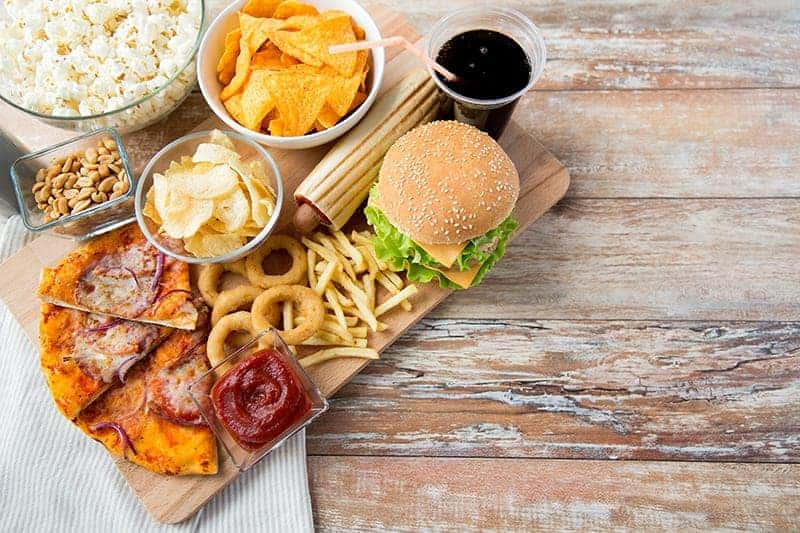People who eat large amounts of ultra-processed foods like cold breakfast cereal, packaged snacks, and hot dogs might be putting their brain health at risk, according to new research. A major long-term study published May 7 in Neurology shows that heavy consumers of ultra-processed foods are over twice as likely to develop multiple early warning signs of Parkinson’s disease compared to those who largely avoid these foods. This concerning link highlights how our daily food choices might affect our neurological health decades before more obvious symptoms appear.
The Hidden Connection Between Diet and Brain Health
The study tracked over 42,000 people for up to 26 years, looking for early signs of Parkinson’s disease. These early signs can show up years or even decades before the more well-known symptoms like tremors and movement problems begin.
“Eating a healthy diet is crucial as it has been associated with a lower risk of neurodegenerative diseases and the dietary choices we make today can significantly influence our brain health in the future,” explained study author Xiang Gao, MD, PhD, of Institute of Nutrition, Fudan University in Shanghai, China.
The research team focused on seven early warning signs of Parkinson’s, including:
- Sleep behavior disorders
- Problems with sense of smell
- Constipation
- Depressive symptoms
- Body pain
- Impaired color vision
- Excessive daytime sleepiness
What Did the Study Actually Find?
Participants completed regular food diaries over the years, allowing researchers to track their consumption of ultra-processed foods. The team defined one serving as equivalent to a single can of soda, one ounce of chips, a slice of packaged cake, a hot dog, or a tablespoon of ketchup.
After analyzing the data and adjusting for factors like age, physical activity, and smoking, the results were striking. People who consumed 11 or more servings of ultra-processed foods daily had a 2.5 times higher likelihood of showing three or more early Parkinson’s signs compared to those eating fewer than three servings daily.
Even more concerning, the link held strong for nearly all the early warning symptoms except constipation.
“There’s growing evidence that diet might influence the development of Parkinson’s disease. Our research shows that eating too much processed food, like sugary sodas and packaged snacks, might be speeding up early signs of Parkinson’s disease,” Gao noted.
Beyond Hot Dogs and Sodas: What Foods Were Studied?
The researchers examined several categories of ultra-processed foods, including:
Sauces, spreads, and condiments; packaged sweets; snacks and desserts; artificially or sugar-sweetened beverages; processed animal products; yogurt or dairy-based desserts; and packaged savory snacks.
This comprehensive approach helped ensure the findings weren’t limited to just one type of processed food.
From Research to Real Life: What Should We Do?
While the study shows a strong association between ultra-processed foods and early Parkinson’s signs, the researchers caution that it doesn’t prove cause and effect. Still, the findings add to growing evidence about the potential neurological impacts of highly processed diets.
“Choosing to eat fewer processed foods and more whole, nutritious foods could be a good strategy for maintaining brain health,” said Gao. “More studies are needed to confirm our finding that eating less processed food may slow down the earliest signs of Parkinson’s disease.”
For now, nutrition experts generally agree that diets rich in whole foods like fruits, vegetables, whole grains, and lean proteins offer the best support for long-term brain health. The study serves as yet another reminder that what we eat doesn’t just affect our waistline—it may help determine how our brains age over time.
As our understanding of the connection between diet and neurological health continues to grow, reducing ultra-processed foods might become an important strategy for protecting brain health, potentially years before diseases like Parkinson’s would otherwise develop.
If our reporting has informed or inspired you, please consider making a donation. Every contribution, no matter the size, empowers us to continue delivering accurate, engaging, and trustworthy science and medical news. Independent journalism requires time, effort, and resources—your support ensures we can keep uncovering the stories that matter most to you.
Join us in making knowledge accessible and impactful. Thank you for standing with us!


What Is a Guest Post Price At:https://scienceblog.com/
I Have Many Clients. My Clients Related To Writing essays, Seo, tech, law,health, news, fashion, travel, law, business, general etc.
Waiting for Your Best Reply
Thanks